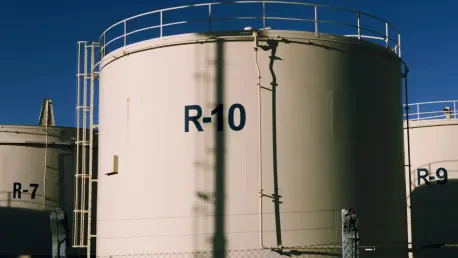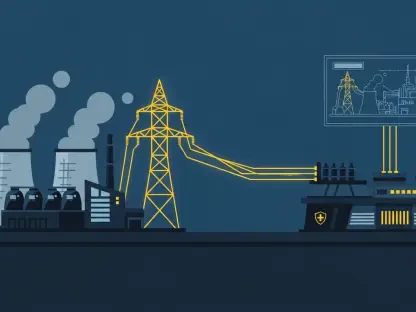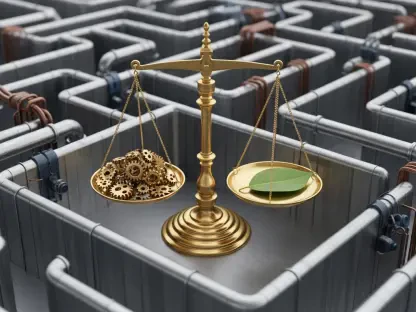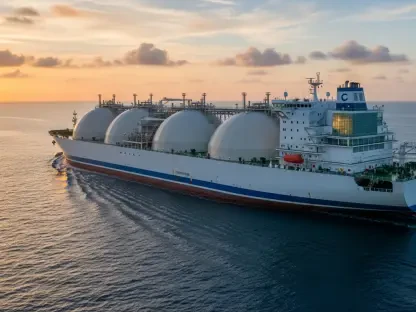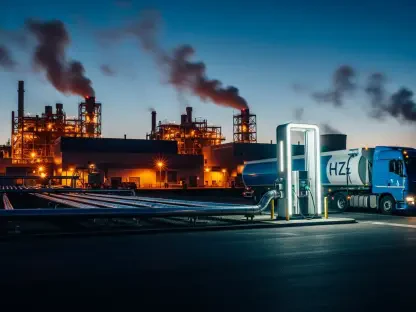In a world where energy demands are soaring, India stands at a pivotal crossroads, striving to cement its role as a key player in the global energy market with an ambitious new project that could redefine its position. Bharat Petroleum Corp (BPCL), a leading state-run oil refiner, has partnered with Oil India, a prominent explorer, to embark on a transformative $11.38 billion venture in Andhra Pradesh. This massive refinery and petrochemical complex signals a strategic pivot for Oil India, traditionally rooted in upstream operations, as it dives into downstream refining. With India ranking as the third-largest oil importer and consumer globally, the nation’s reliance on fossil fuels remains undeniable. This project is not just about meeting domestic needs but also about positioning the country as a formidable refining hub on the international stage. The collaboration underscores a broader vision to enhance energy security while navigating the complex balance between economic growth and sustainability challenges.
A Strategic Leap in Refining Capacity
The Andhra Pradesh project is set to redefine India’s refining landscape with a proposed capacity of 180,000 to 240,000 barrels per day, alongside a petrochemical complex featuring a 1.5-million-ton ethylene cracker. BPCL has already secured crucial statutory approvals and 6,000 acres of land from the state government, with pre-project activities well underway. The complex aims to begin commercial operations by the fiscal year 2030, marking a significant milestone in bolstering domestic production capabilities. Oil India is considering a 10%-20% stake in this endeavor, while BPCL actively seeks additional partners to share the substantial investment and technical expertise required. Beyond this flagship project, other infrastructure initiatives are taking shape, such as the expansion of Oil India’s Numaligarh Refinery Ltd in Assam to 180,000 barrels per day by March 2027. Additionally, a 700-km fuel pipeline from Siliguri to Mughalsarai, developed in collaboration with BPCL, highlights a concerted effort to strengthen energy distribution networks across the country.
Balancing Energy Demands with Sustainable Steps
While the primary focus of these initiatives remains on fossil fuel infrastructure to address India’s escalating energy needs, there are subtle yet noteworthy moves toward sustainability. BPCL, which operates three refineries with a combined capacity of 706,000 barrels per day, has ventured into greener territory by partnering with Fertilisers & Chemicals Travancore to market organic fertilizers from its Kochi biogas plant. Though this represents a smaller segment of its operations, it reflects an awareness of the need to diversify beyond traditional energy sources. The broader strategy among state-run oil companies appears to mirror India’s national energy policy, which seeks to harmonize immediate economic imperatives with long-term environmental goals. These dual efforts—expanding refining and pipeline capacities while cautiously exploring sustainable alternatives—demonstrate a nuanced approach to energy challenges. Looking back, the steps taken through these partnerships highlight a critical juncture where robust infrastructure meets tentative green innovation, paving the way for future policy considerations and strategic collaborations.
